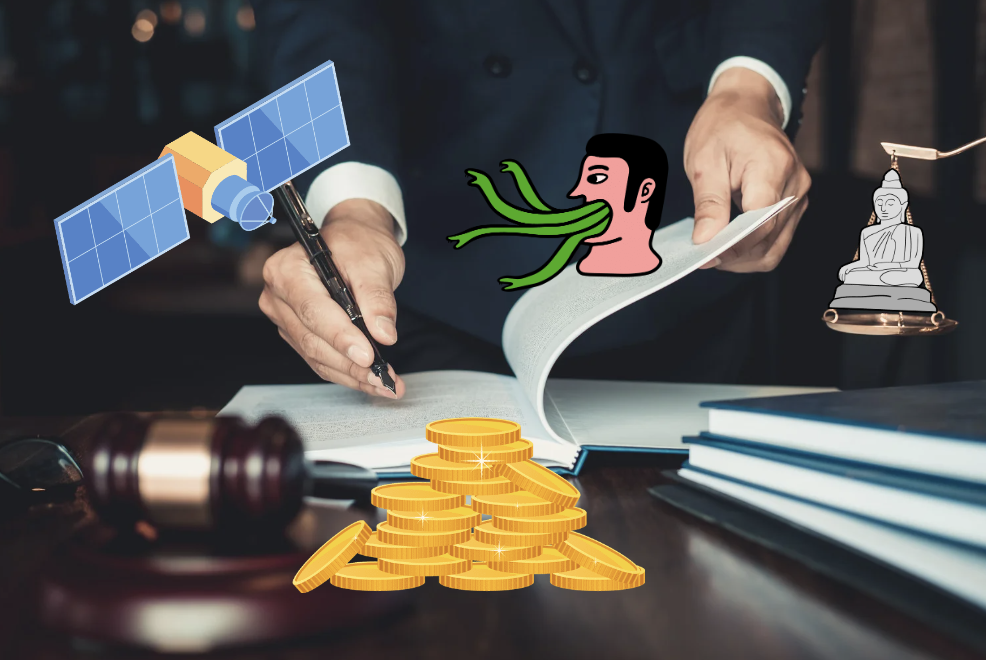First trial of ACE fraud case! Main suspect of the fraud ring claims "issuing coins is not a crime", Low Orbit Satellite Lawyer pleads guilty, founder claims to only serve as a "manager"

The Taipei District Prosecutors Office recently uncovered a major case of cryptocurrency fraud and money laundering, involving key suspects including a man surnamed Lin who is the leader of the fraud group, a well-known lawyer surnamed Wang, and several high-ranking individuals associated with the ACE exchange. The amount involved in the case reached as high as 2.2 billion New Taiwan Dollars, with far-reaching implications for the cryptocurrency market in Taiwan. The case went to trial on April 29th, revealing more information from the detained suspects.
According to reports, Lawyer Wang Chen-huan was released on bail of 4 million New Taiwan Dollars with travel restrictions. The main suspects of the fraud ring, Lin Geng-hong, Lin Ruo-qiao, and ACE founder Pan Yi-chang, along with five others, remain in custody and are not allowed visitors, while the rest were released on bail ranging from 200,000 to 1 million New Taiwan Dollars.
Table of Contents
Main Suspect Lin Geng-Hong Claims: Coin Issuance is Innovation, Products Are Recognized
In court, the main suspect of the fraud case, Lin Geng-Hong, firmly asserts his innocence. He believes that the four cryptocurrencies in question are innovative applications from Taiwan and claims that his actions were for the development and research of cryptocurrencies. Lin Geng-Hong attempts to turn the courtroom into a product launch event, boasting that his cryptocurrencies have been recognized by the market, including collaborations with director Wei Te-Sheng and famous internet personalities.
Low-Orbit Satellite Lawyer Wang Chen-Huan Admits Guilt: Willing to Settle with Victims
During the investigation, shocking additional cases emerged. Wang Chen-Huan, the former managing partner of JY Law Firm, who profited 70 million New Taiwan Dollars by deceiving clients with the promise of "shooting down low-orbit satellites," admitted to playing an advisory role involving altering the whitepapers used in the fraud and engaging in money laundering. Wang Chen-Huan expressed willingness in court to reach a settlement with the victims and publicly apologized for his actions.
As the fraud case concludes, leading exchange executives Pan Yi-Chang and Wang Chen-Huan face sentences of 20 years and 12 years, respectively.
ACE Founder Pan Yi-Chang and Employees Deny Crimes
Pan Yi-Chang, the founder of ACE Exchange, along with employees Gao Wei-Lun and Lin Jing-Zhi, are accused of manipulating token prices related to the fraud ring but deny any criminal activities. Pan Yi-Chang claims to be a professional manager and has been trying to distance himself from Lin Geng-Hong's influence since 2021. It wasn't until 2023, when Lin Geng-Hong brought in Wang Chen-Huan to take over the exchange, that he was able to leave. Gao Wei-Lun, Lin Jing-Zhi, and others emphasize that they are ordinary employees who did not receive additional benefits beyond their fixed salaries for selling cryptocurrencies.
Yilan Lotus Pond Monastery Abbot Denies Money Laundering Allegations
Lin Shu-Fen, the abbot of the Yilan Lotus Pond Monastery, is accused of aiding Lin Geng-Hong in money laundering and conducting brainwashing lectures but argues in court that she only assisted in the spiritual practice of Lin Geng-Hong and was unaware of his commercial activities. Lin Shu-Fen states that her actions were based on religious beliefs and not intended to participate in the fraud.
This case involves over 1,292 reported victims with total losses exceeding 800 million NTD. Many investors were lured by the high returns of cryptocurrencies and failed to recognize the risks, ultimately falling victim to the fraud.
Taiwan's Financial Supervisory Commission lacks comprehensive regulation, with prosecutor groups criticizing the practice of guiding specific industry players while neglecting secondary operators and currency traders.
Related
- Crypto scams run wild in October, global crypto market hacked for $129 million in a single month
- The U.S. demands North Korean hacker Lazarus to return $2.67 million, exposing North Korean infiltrators in crypto startups.
- Interpol issues red notice for "Coin Young" Wong Ching-kit, a swimming coach turned cryptocurrency scammer, who promoted JPEX.